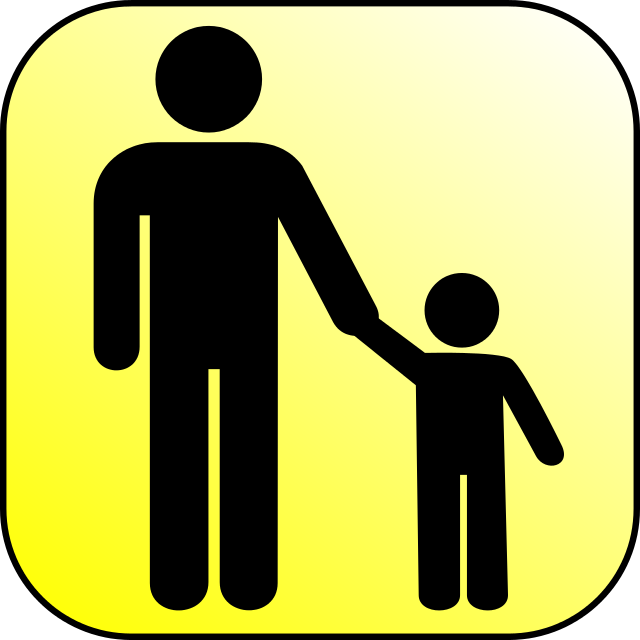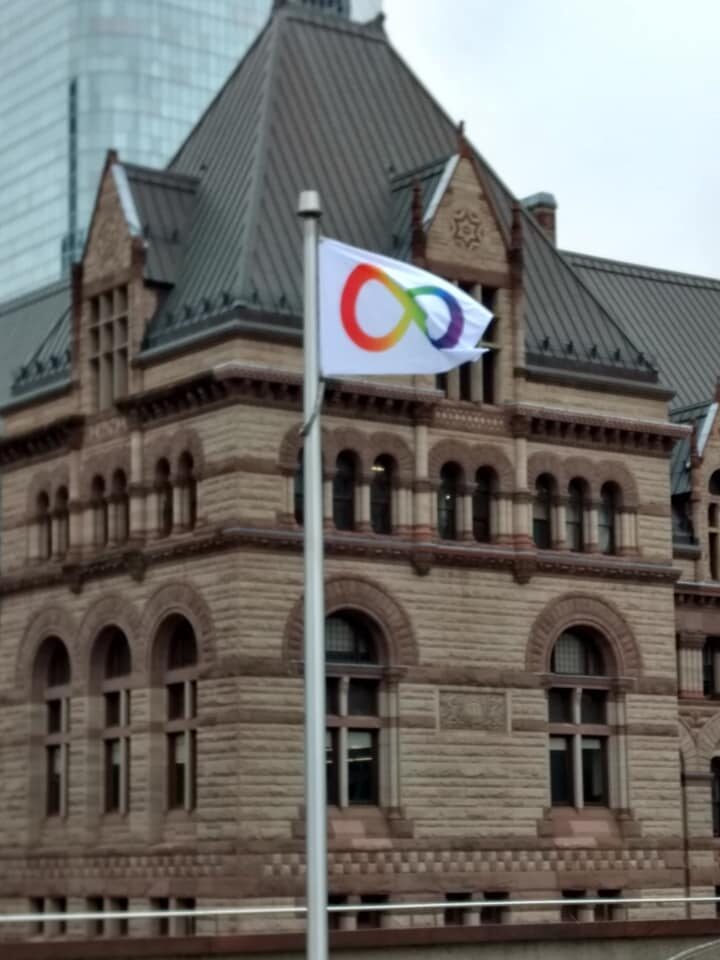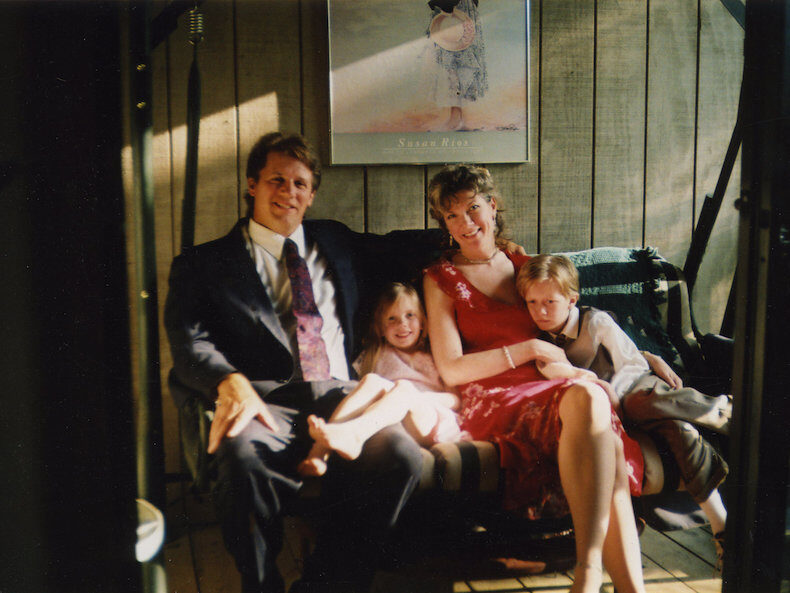Too often, people cause the “behaviour” that they blame on “real autism.” And it’s often their own approaches that need changing.
Tag: abuse
While we know that the majority of autistic people experience abuse and sexual assault during their lifetimes, autistic women are particularly vulnerable, and we need more research in this area.
Those who would deny people access to their most effective method of communication because of concerns about the potential for false accusations should, as Rua Williams recently wrote, “ask [themselves] why a false accusation is more harmful than the ability to accuse.”
I truly do not know why some parents don’t want to listen to autistic adults. There is so much good autism information for parents from autistic adults, and so much of it is freely available, and yet the parents choose not to know.
[image: Neurodiversity flag at Toronto City Hall, April 2019. Photo by Anne Lesserknaus.] Anne Borden King twitter.com/againstcures twitter.com/a4aontario a4aontario.com In the summer of 2017, five of us launched an autistic-led advocacy organization in Canada, called Autistics for Autistics (A4A). Our mission was to fight for the rights of autistics to have safe childhoods, communication rights, inclusive schools, trauma-free housing, fair employment, accessible health care and community equality. We centred both children and elders in our work, following the UK model. We took a grassroots approach, eschewing hierarchies in favour of a multifaceted strategy, working to make as much change as we could. What we lacked in funding, resources, and relationships, we’ve made up for in vision and persistence. In one of our first meetings with a Member of Parliament, she told us that our group “should just represent the autistic adults,” and leave the matter of children’s rights to Ontario’s…
I’d like to say that “elopement” is a ridiculous term. Right up there with “differently abled,” IMHO. It’s running away. It’s wandering. Call it what it is!
One of the families featured in A Dangerous Son (Source: HBO) [image: A white family of four, with two young kids, on a couch together.] Kit Mead kpagination.wordpress.com Content note: Discusses violence and abuse regarding children with mental illness and disability, and the Newtown shootings. I’m not going to watch “A Dangerous Son,” the HBO documentary that tells “a story about families with children who have psychiatric disorders that lead to violent behavior.” I’m going to avoid it mostly because I have already read all of those stories. Again. And again. And again. And I have found them incredibly disturbing each time—on behalf of the children who are being written off and exploited. Especially because, as Mel Baggs points out: Across violent and abusive sets of environments, we—the kids—are the only ones seen as having a violence problem. And those environments are so very often the context for “violent outbursts.” Like…
[image: Brown book cover. Small yellow text at the top reads, “Zachary Goldman Mysteries 2” Next, the title in white all caps text reads, “His Hands Were Quiet.” Next is an image of a yellow triangle with a silhouette of a person bending backwards and being struck in the chest with a bolt of electricity. Large yellow text at the bottom reads, “PD Workman”.] Maxfield Sparrow His Hands Were Quiet By P.D. Workman Content notes: suicide, abuse, murder, house fires, burn injuries, PTSD, Judge Rotenberg Center, ABA This book review gets all the Autistic trigger warnings. It is a gripping thriller/suspense novel that could help people understand autism and Autistic people better, and it is raw and honest about what some of the most vulnerable Autistic people endure. It will be a tense read for everyone and could be especially triggering for many Autistic people, so proceed carefully with this review and…
When people claim that “cure autism now” and the disease model and the Judge Rotenberg Center are not about me, well I beg to differ. The only reason they’re not about me is that I’m old and verbal enough to not be vulnerable to that kind of abuse. Autistic people do not get abused [and/or put in ABA therapy] because they are low-functioning, they get abused because they do weird things.
Photo © RoseFireRising | Flickr / Creative Commons [image: Mandala made out of different colored and shaped pills, on a dark blue background.] Kit Mead kpagination.wordpress.com [Note: This post discusses anxiety, medications, and chemical restraints. It is meant to caution against overmedication and about risk factors in medication for autistic people, with the understanding that many autistic people rely on psychiatric medication for their health and well-being.] I would need more than two hands to count the psych meds I’ve been given. There are enough that I don’t remember all of them; it started in the first grade. Some were just regular ADHD meds—which I needed—not psychotropic. As years passed, others were anti-anxiety SSRIs, and then antipsychotics; many well before I’d hit the end of middle school (these include Risperdal, Paxil, and Wellbutrin). While I was not diagnosed autistic until I was 14 or 15, the logic under which these…








